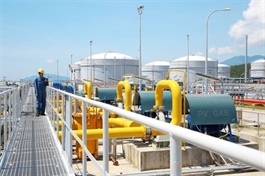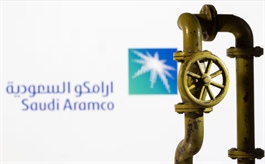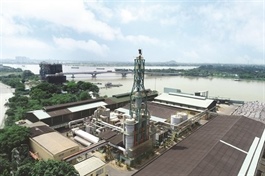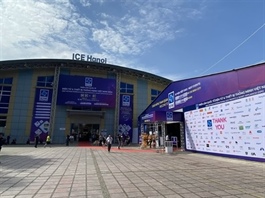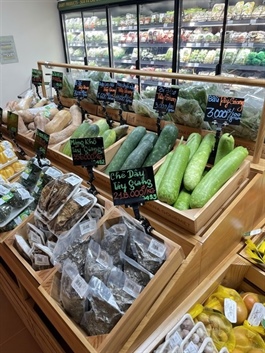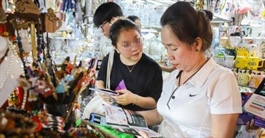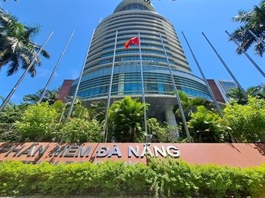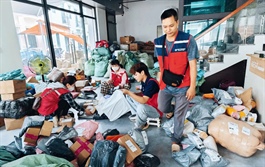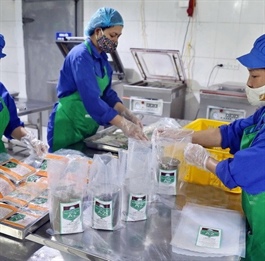Logistics sector must embrace innovative trends to stay competitive
Logistics sector must embrace innovative trends to stay competitive
The Vietnamese logistics industry must adapt to new trends and enhance infrastructure to remain globally competitive, speakers said at an event in HCM City on Thursday.
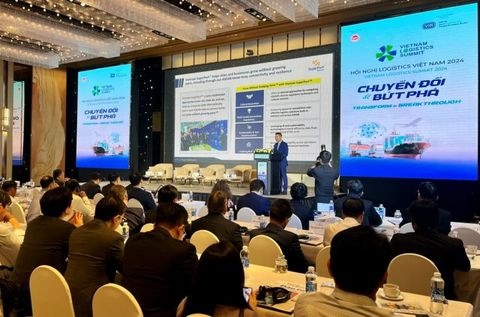
Speakers at the Vietnam Logistics Summit 2024 organised by Đầu tư (Investment) newspaper on Thursday in HCM City. — VNS Photo Bồ Xuân Hiệp |
Speaking at the Vietnam Logistics Summit 2024 organised by Đầu tư (Investment) newspaper, Lê Trọng Minh, its editor-in-chief, said that logistics is one of Việt Nam’s fastest-growing sectors, with a 16 per cent annual growth rate.
The sector currently contributes 4-5 per cent to national GDP and employs over one million people, and ranking among the top five in ASEAN, he added.
Việt Nam’s logistics market is valued at around US$40 billion in 2023, with expected growth of 14-15 per cent by 2025.
Factors such as free trade agreements, Việt Nam’s strategic location, and a favourable investment climate are driving this growth, aided by a recovery in trade post-pandemic, he said.
Moreover, the Government’s focus on major infrastructure projects and dual transitions in digital and green initiatives presents significant opportunities for Việt Nam’s logistics sector, he added.
According to a report by Precedence Research, the global logistics market is expected to reach $21.91 trillion by 2033, growing at 9.35 per cent annually.
Challenges

Speakers at the Vietnam Logistics Summit 2024. — VNS Photo Bồ Xuân Hiệp |
Experts have, however, warned that the global logistics sector is facing numerous challenges, including economic uncertainty, geopolitical tensions, supply chain disruptions, declining consumer demand, and the impact of natural disasters such as Typhoon Yagi.
For Việt Nam’s logistics industry to thrive, it cannot rely solely on its current advantages, they noted.
Ranked 43rd globally in the Logistics Performance Index, Việt Nam must improve amidst a rapidly changing environment, they noted.
Đỗ Thành Trung, deputy minister of Plannning and Investment, pointed out that the logistics sector is facing insufficient and incoherent policies, as well as a fragmented legal framework.
The country’s logistics infrastructure, including warehouses and transport networks, is limited and poorly coordinated, hindering seamless multimodal transport, he added.
There is also a shortage of strategically located logistics centres and a lack of skilled personnel in the industry, many of whom operate as subcontractors for foreign firms.
The challenges have been serious, particularly as the global landscape evolves with shifts in security, geopolitics, and rapid technological advancements in areas such as Big Data and AI.
Despite the challenges, the context presents an opportunity for firms to expedite their transformation, becoming more agile and robust, according to Trung.
“Companies that effectively leverage emerging technologies will gain a competitive edge in the market,” he said.
Vietnamese logistics companies, mostly small to medium-sized enterprises, must optimise practices, accelerate digital transformation, and invest in new technologies to enhance competitiveness, he recommended.
The conference also addressed other topics such as data security, cyberattacks, and cargo safety, focusing on preventive measures and response strategies in the logistics sector.
As part of the event, an exhibition showcased innovative technologies and solutions in logistics.
Themed “Transform to Breakthrough,” the conference discussed key industry challenges, including logistics infrastructure modernisation, supply chain efficiency, digital transformation, and new business models.
Over 300 attendees participated in the event, including State officials, industry experts, logistics providers, manufacturers, and consultants.
It was also streamed on platforms such as Facebook and YouTube.




